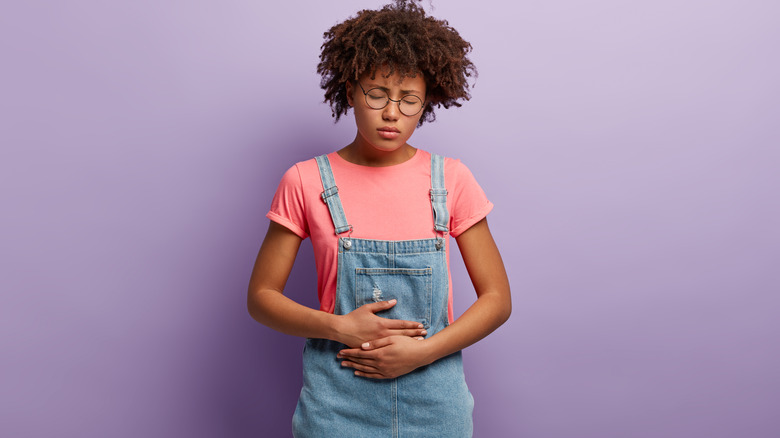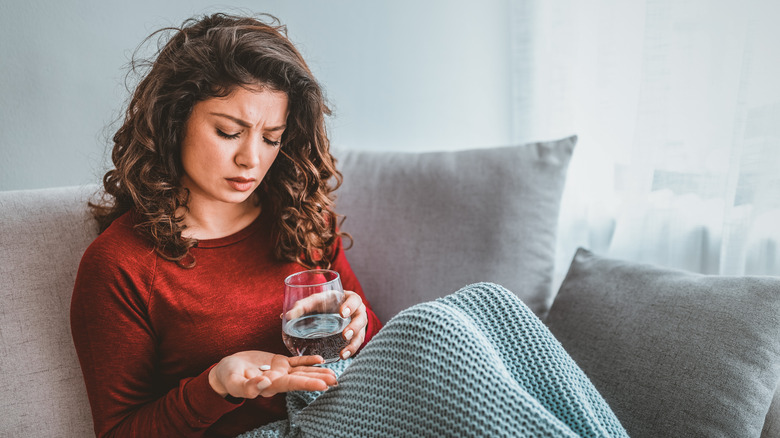The Real Reason Fibroids Are Painful And How To Manage It
If your doctor has discovered that you have uterine fibroids, it might sound like a scary diagnosis. However, up to 80% of women in their childbearing years experience fibroids at some point in their lives. Most of the time, they're virtually painless, according to Verywell Health. For some, however, fibroids can lead to pain, and treatment is needed to keep symptoms in check.
Fibroids are non-cancerous growths made up of connective tissue and muscle from the uterus. They can be so tiny that they're undetectable or they may grow so large that they distort the uterus (via Mayo Clinic). While you might just have one fibroid, it's also common to have multiple fibroids, which can expand the uterus. They rarely develop into cancer and often cause no symptoms at all, only to be discovered during a routine exam. Sometimes, they can cause heavy menstrual bleeding, periods that last longer than a week, pelvic pressure, frequent urination, constipation, and different types of pain.
Fibroid pain and treatment
The amount of pain caused by fibroids depends on their size, location, and how many there are (via Verywell Health). The pain can be chronic or it can come and go. Depending on where they're located, they can cause pain during intercourse, severe menstrual cramps, sharp abdominal pain, severe pelvic pressure, back pain, and constipation. This is because the fibroids are either putting pressure on the uterine wall or pressing on other areas like the bladder, rectum, or nerves. In some cases, the fibroids will begin to shrink and disintegrate as they lose blood flow, which can also cause acute pain.
There are a number of ways to treat fibroid pain, which are specific to each person. Home remedies are common and include avoiding alcohol, getting regular exercise, eating a diet rich in leafy greens, fruits, whole grains, and fish, and avoiding sugary, processed foods. Over-the-counter medications can also help, like nonsteroidal anti-inflammatory drugs (NSAIDs), iron supplements, and certain vitamins like vitamins D and A.
Your doctor can also help treat fibroids, by prescribing medications like hormonal birth control. Surgical procedures to remove the fibroids are also common when home remedies and medications haven't reduced the pain. Sometimes, fibroid-related pain can be related to other conditions, so be sure to consult with your doctor if you're unsure.


